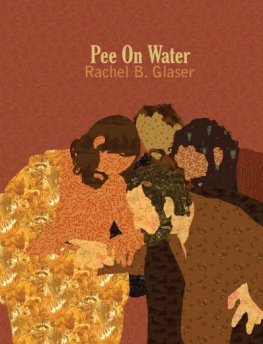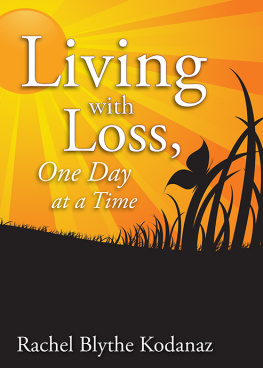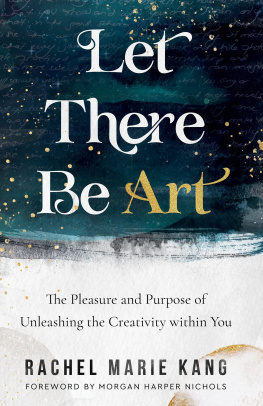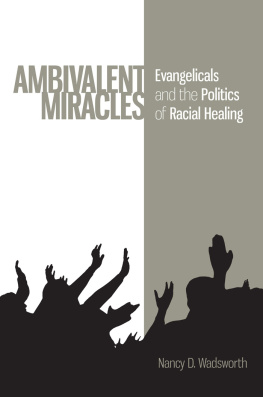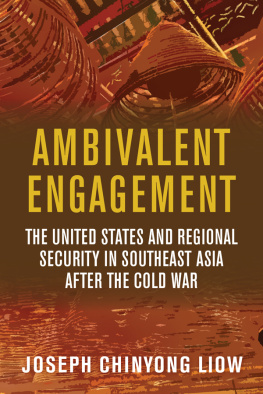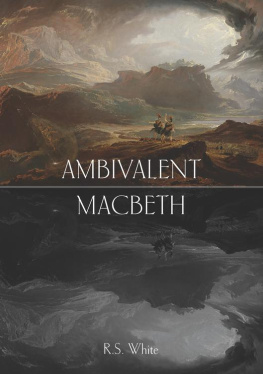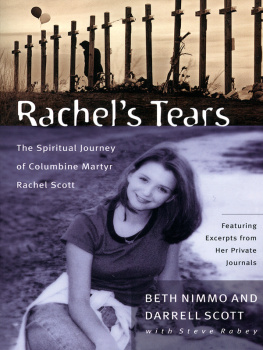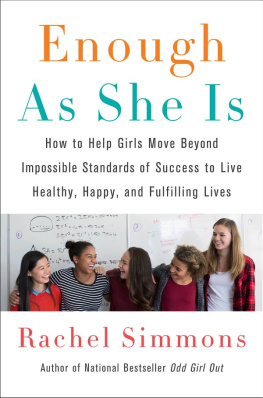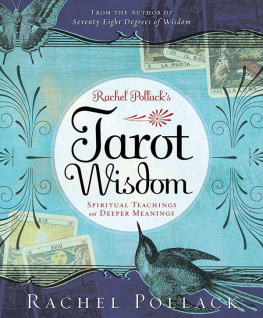Rachel Kranson - Ambivalent Embrace
Here you can read online Rachel Kranson - Ambivalent Embrace full text of the book (entire story) in english for free. Download pdf and epub, get meaning, cover and reviews about this ebook. year: 2017, publisher: The University of North Carolina Press, genre: Romance novel. Description of the work, (preface) as well as reviews are available. Best literature library LitArk.com created for fans of good reading and offers a wide selection of genres:
Romance novel
Science fiction
Adventure
Detective
Science
History
Home and family
Prose
Art
Politics
Computer
Non-fiction
Religion
Business
Children
Humor
Choose a favorite category and find really read worthwhile books. Enjoy immersion in the world of imagination, feel the emotions of the characters or learn something new for yourself, make an fascinating discovery.

- Book:Ambivalent Embrace
- Author:
- Publisher:The University of North Carolina Press
- Genre:
- Year:2017
- Rating:4 / 5
- Favourites:Add to favourites
- Your mark:
- 80
- 1
- 2
- 3
- 4
- 5
Ambivalent Embrace: summary, description and annotation
We offer to read an annotation, description, summary or preface (depends on what the author of the book "Ambivalent Embrace" wrote himself). If you haven't found the necessary information about the book — write in the comments, we will try to find it.
Ambivalent Embrace — read online for free the complete book (whole text) full work
Below is the text of the book, divided by pages. System saving the place of the last page read, allows you to conveniently read the book "Ambivalent Embrace" online for free, without having to search again every time where you left off. Put a bookmark, and you can go to the page where you finished reading at any time.
Font size:
Interval:
Bookmark:
Ambivalent Embrace
This book was published with the assistance of the Anniversary Fund of the University of North Carolina Press.
2017 The University of North Carolina Press
All rights reserved
Manufactured in the United States of America
The University of North Carolina Press has been a member of the Green Press Initiative since 2003.
A version of chapter 6 was first published in Journal of Jewish Identities 8, no. 2 (2015): 5984. Reprinted with permission by Johns Hopkins University Press.
Parts of chapter 3 were first published in Rites of Passage: How Todays Jews Celebrate, Commemorate, and Commiserate (West Lafayette: Purdue University Press, 2010), 923.
Cover illustration: LShana Tova (Happy New Year) postcard from the collection of Dr. Haim Grossman. Used by permission of Dr. Haim Grossman.
LIBRARY OF CONGRESS CATALOGING-IN-PUBLICATION DATA
Names: Kranson, Rachel, author.
Title: Ambivalent embrace : Jewish upward mobility in postwar America / Rachel Kranson.
Description: Chapel Hill : The University of North Carolina Press, [2017] | Includes bibliographical references and index.
Identifiers: LCCN 2017019368 | ISBN 9781469635422 (cloth : alk. paper) | ISBN 9781469635439 (pbk : alk. paper) | ISBN 9781469635446 (ebook)
Subjects: LCSH: JewsUnited StatesSocial conditions. | JewsUnited StatesAttitudes. | WealthReligious aspectsJudaism. | WealthMoral and ethical aspects. | WealthPsychological aspects. | JewsUnited StatesIdentity.
Classification: LCC E184.36.S65 K73 2017 | DDC 305.892/4073dc23
LC record available at https://lccn.loc.gov/2017019368
For Jamie, Sasha, and Ezra
Author Sylvia Rothchild
Exterior of Congregation Solel Building, 1963
Still from A Flag Is Born, 1946
Hadassah Makes You Important brochure cover, 1957
This Is Your Life in Hadassah brochure cover, 1954
Chutzpahs coverage of International Womens Day, 1971
I have been living with this project for longer than I care to admit. Counterbalancing the solitary hours I spent in front of my computer, however, were the many personal and professional relationships that developed and deepened as I worked on this book. I am honored to finally be able to thank the institutions, colleagues, family members, and friends who offered me practical help with my scholarship and the emotional support I needed to move forward with my research and writing.
In the initial phases of my research, fellowships from the Graduate School of Arts and Sciences at New York University and New York Universitys department of history sponsored my work. Additional grants from the Immigration and Ethnic History Society, the Memorial Foundation for Jewish Culture, the American Jewish Archives, the Feinstein Center at Temple University, and the History of Women and Gender group at New York University allowed me to continue developing the project. Summer funding and a research leave from the University of Pittsburghs Dietrich School of Arts and Sciences offered me the time and resources I needed to transform the manuscript into a book, while the Richard D. and Mary Jane Edwards Endowed Publication Fund supported the final aspects of production.
I am indebted to the archivists and librarians who ensured that I could access all the materials I needed. These include Susan Woodland, Boni Joi Koelliker, Tanya Elder, and many other archivists and librarians at the Center for Jewish History in New York City who have been generous with their time and expertise; Kevin Proffit, Dana Herman, and the rest of the team at the American Jewish Archives who were so hospitable during my weeks in Cincinnati and have continued to offer me assistance in the years since; Amanda (Miryem-Khaye) Seigel at the Dorot Jewish Division of the New York Public Library; and the staff at the Tamiment Library at New York University. Susan Weidman Schneider and Naomi Danis at Lilith Magazine not only were able to find articles I needed on a moments notice but have long been mentors and dear friends. My thanks also to Allan Litwack, executive director of Temple Solel in Highland Park, Illinois, who allowed me to sift through the treasure trove of documents located in the Temple basement, and to Karen Kohn, who offered home hospitality as I did so. I am grateful to Adam Soclof and the managers of nostol.co.il for tracking down the cover image for this volume and to Haim Grossman for permission to use it. And finally, I thank Laurie Cohen of the University of Pittsburghs Hillman Library, who makes Jewish studies research at Pitt possible by maintaining the Jewish studies collection and securing access to the relevant databases.
My editor, Elaine Maisner, and the entire team at the University of North Carolina Press expertly shepherded this project from manuscript to book. I am thankful for their professionalism, their keen editorial sensibility, and their hard work in contributing to a final product that we can all be proud of.
Of all the people who contributed to this book, I owe my deepest debt of gratitude to Hasia Diner, who nurtured my passion for scholarship and supported this project from its inception. She is a brilliant scholar, an exemplary mentor, a fierce advocate, a generous and exacting critic, and a model of integrity. Above all, she has inspired me with her expansive vision for what the field of American Jewish history has the potential to accomplish. I can only hope that this volumewhatever its flawsdoes justice to that vision and to her unwavering faith in my work.
I am also grateful to the scholars who have read through substantial sections and even full drafts of this project, generously contributing their comments and critiques at significant junctures in the writing process. I humbly thank Marion Kaplan, Linda Gordon, Lila Corwin Berman, Andrew Needham, Melissa Klapper, Alexander Orbach, Riv-Ellen Prell, Kirsten Fermaglich, and Michael Alexander for offering my work a careful read. Along with Hasia Diner they comprised what I consider to be a dream team of interlocutors, and this book is much improved for their efforts.
My thanks also to colleagues and mentors who offered encouragement, shared references, wrote letters of support, invited me to panels and workshops, let me peek at unpublished drafts of their own scholarship, and asked crucial questions at conference presentations, seminars, coffeehouses, restaurants, and online chats: Rebecca Alpert, Joyce Antler, Adriana Brodsky, Jessica Cooperman, Daniella Doron, Jodi Eichler-Levine, Gill Frank, Joshua Furman, Jennifer Glaser, Karla Goldman, Rachel Gordan, Shiri Goren, Ronnie Grinberg, Bea Gurwitz, Sarah Imhoff, Brett Kaplan, Emily Katz, Barbara Kirshenblatt-Gimblett, Shira Klein, Rebecca Kobrin, David Koffman, Shira Kohn, Josh Lambert, Ann Lapidus Lerner, Laura Levitt, Keren McGinity, Samira Mehta, Deirdre Moloney, Bethany Moreton, Hannah Pressman, Shari Rabin, Lara Rabinovitch, Michael Rom, Jonathan Sarna, Shuly Rubin Schwartz, Bryant Simon, Michael Staub, and David Weinfeld.
I have benefited from excellent feedback from colleagues at the Association for Jewish Studies conference, the annual meeting of the Organization of American Historians, the biennial scholars conference of the American Jewish Historical Society, the Berkshires Conference of Women Historians, the conference on Jewish Attitudes toward Wealth and Poverty at Brown University, the Klutznick-Harris Symposium in Jewish Studies at Creighton University, the History of Women and Gender Colloquium at New York University, the Religious Studies Colloquium Series at the University of Pittsburgh and from invited presentations at Yale Universitys Modern Jewish history Colloquium, Temple Universitys Workshop Series on Food, Consumption, and Jewish Life, and the Jewish Studies program at Michigan State University. Thanks also to colleagues from the University of Michigans Frankel Center for Advanced Judaic Studies, who read drafts and offered advice as I completed the final stages of this project and began the initial steps of a new one: Deborah Dash Moore, Beth Wenger, Dorothy Kim, Benjamin Baader, Max Strassfeld, Marjorie Lehman, Anita Norich, Verena Kasper-Marienberg, Evyatar Marienberg, Shachar Pinsker, Christine Achinger, Suzy Dessel, and Ricki Bilboim, zl.
Next pageFont size:
Interval:
Bookmark:
Similar books «Ambivalent Embrace»
Look at similar books to Ambivalent Embrace. We have selected literature similar in name and meaning in the hope of providing readers with more options to find new, interesting, not yet read works.
Discussion, reviews of the book Ambivalent Embrace and just readers' own opinions. Leave your comments, write what you think about the work, its meaning or the main characters. Specify what exactly you liked and what you didn't like, and why you think so.

